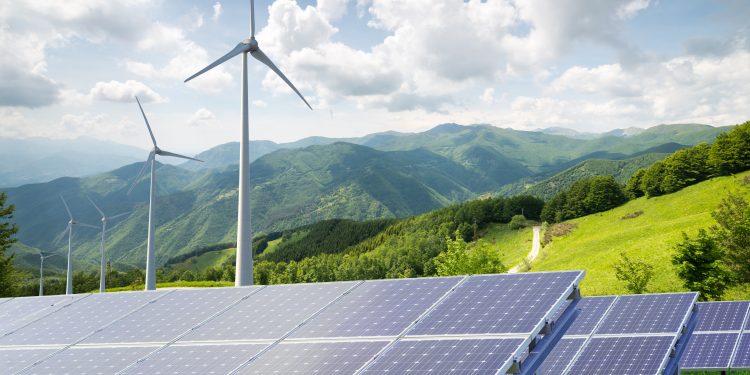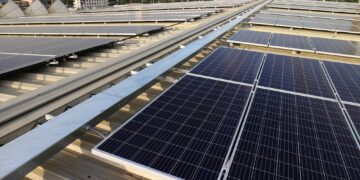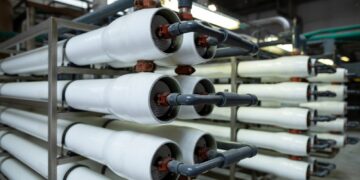Leading Chinese companies in the domain of clean energy are set to erect manufacturing plants in Saudi Arabia, aiming to broaden their international reach while navigating trade constraints imposed by the United States and Europe as well as intense domestic rivalry.
Yazeed Al-Humied, deputy governor and head of investments for the Middle East and North Africa region at the Saudi Public Investment Fund (PIF), highlighted that these initiatives are part of Saudi Arabia’s strategy to internalize state-of-the-art technologies in the renewable energy sector. These projects will also enable Saudi Arabia to become a global hub for export of renewable technologies,
he asserted.
Jinko Solar has announced plans on Tuesday to invest US$985 million into a new facility designed to produce 10 gigawatts (GW) of solar cells and modules each year. The venture, also involving Saudi Arabia’s Vision Industries, aims to fortify Jinko Solar’s global manufacturing and marketing capabilities, as stated by Chairman and CEO Li Xiande.
In collaboration with PIF and Vision Industries, TCL Zhonghuan is set to invest US$2.08 billion in a production site with the potential to generate 20GW of photovoltaic silicon ingots and wafers annually. The financial details for Envision Energy’s joint project with PIF and Vision Industries, focusing on wind-turbine component manufacturing with an annual capacity of 4GW, have not been disclosed.
Post the announcement, Jinko Solar’s shares saw a 4 percent decline, closing at 7.5 yuan, while TCL Zhonghuan’s shares dropped by 3 percent to 8.73 yuan. Conversely, shares of other top Chinese solar firms such as Longi and Tongwei experienced an upswing.
The establishment of these three joint ventures mirrors the wider trend of Chinese clean energy developers venturing into international markets. These firms are currently grappling with internal price competition and an exacerbating surplus of supplies.
With the Middle East and Southeast Asia identified as upcoming lucrative markets, Chinese energy developers are shifting focus to these regions in response to the US tariff hikes and the European Union’s anti-subsidy probes.
Trade relations between China and the Middle East in the energy sector are poised for substantial growth, potentially transforming the global landscape, especially following the Saudi-Iran peace deal facilitated by China last year. Swiss bank UBS projects that by 2030, energy-related trade between the two regions will escalate by US$423 billion annually, with renewable energy and petrochemicals contributing US$77 billion and US$325 billion respectively.









